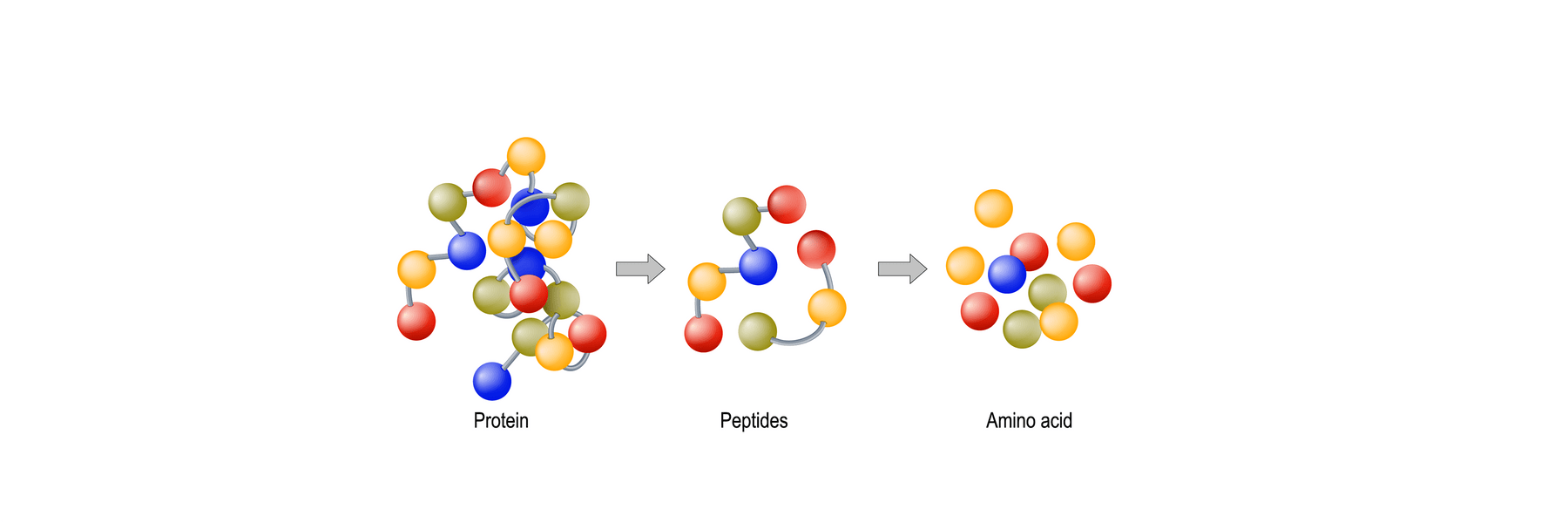
Peptides: Why They Are Good For The Skin
If you’re always looking for the best healthy-aging skincare, you may have heard of peptides.
But what are they, exactly? And why should you care?
You also might not know how they’re used, or what benefits they offer.
If you want to know what they can do for your skin and how they work, continue reading.
WHAT ARE PEPTIDES
Peptides are molecules made from smaller protein molecules called amino acids. When these small amino acids build up and bond together to form a penetrable chain, a peptide is created.
Chemists synthesize these chains to perform specific functions in skin care products. Therefore, when a product contains peptides, the protein has been synthesized to its most usable form -- shorter chain amino acids, which are more available to build up and repair the skin.
The most commonly known proteins in the skin are collagen, elastin and keratin, which are responsible for its texture and tone.
Peptides increase hydration and improve the skin barrier in two ways:
First, they make the skin more porous, allowing water to penetrate into the skin.
Second, they promote collagen production, and they help the skin repair itself.
HOW THEY WORK
When applied to the skin via a serum or moisturizer, peptides act as a "messenger" telling the skin to produce more collagen. Thanks to this, peptides can help reduce the appearance of fine lines and wrinkles.
The goal of peptides is to increase the amount of collagen our cells produce or slow down the amount of collagen that gets broken down, with the ultimate goal being smoother, plumper, healthier skin.

TYPES OF PEPTIDES
The newest next-generation peptides in skin care products are palmitoyl tripeptide-38 and palmitoyl tripeptide-5.
Found in Skin Boost Peptide Elixir and 360 Renewal Creme.
Palmitoyl tripeptide-38
One of the most compelling matrix building peptides available today. This ‘messenger’ peptide was developed using a different thought process than previous peptides used in skin care.
Rather than being used for one specific function in the skin, it has demonstrated the ability to increase the production of the following:
Collagen I - the most abundant form of collagen in humans. It is thought to comprise over 90% of all collagen found in the human body.
Collagen III - often referred to as collagen “of youth”. It is also thought to be responsible for the overall smoothness of the skin. It decreases in the skin with the natural aging process.
Collagen IV – is responsible for forming the base of cell membranes.
Hyaluronic Acid - which regulates cell proliferation and migration is also responsible for water retention in the tissues.
Palmitoyl tripeptide-38 is also the most effective peptide available today for thickening the dermis (outer layer of skin) and strengthening the extracellular matrix (“physical scaffolding” for the cells, holding cells in place), giving way to healthier skin.
Palmitoyl tripeptide-5
What makes this peptide so ingenious is its ability to actively compensate for a collagen deficit in the skin by replacing the missing collagen, further supporting the density of the dermis.
In vitro testing has shown an increase in collagen synthesis by 119%, making Palmitoyl tripeptide-5 an excellent addition to corrective healthy aging product formulations.
WHAT SKIN TYPES CAN USE PEPTIDES?
M A T U R E S K I N: Peptides can message fibroblasts [cells in the skin that produce collagen] to increase production of collagen.
D R Y S K I N: Peptides increase hydration and improve the skin barrier, helping it lock in moisture. With a better skin barrier, there is more protection against bacteria, UV rays, pollution, and other toxins.
A C N E I C S K I N: They are able to kill bacteria, which we know is helpful when it comes to acne.

WHAT PEPTIDES DO NOT DO
Without peptides, skin doesn’t remain intact and the result is loss of firmness, appearance of wrinkles, texture changes, and skin that doesn’t bounce back as it once did.
Peptides can do amazing things for skin, but they do NOT replace what cosmetic procedures can do.
There's no single ingredient solution for all the signs of aging and other skin problems we endure, and peptides are no exception.
We would be cheating our skin to think that any single peptide (or any other specific skin care ingredient) is your skin's solo rescuer.
What’s most important to keep in mind is that as special as peptides are, they need "friends" in the form of supporting ingredients to help address all the needs of skin.
The skin is the primary defender and protector of outside forces. If it is not reset on a daily basis to help purge damage and inflammation, the skin's defenses weaken and unwanted changes to the gene patterns occur to compensate.
Peptides can do a lot on their own, but they can't do it all alone.
When blended with antioxidants, skin-soothing ingredients, and skin-replenishing ingredients they can address multiple signs of aging and you will love the results!
Which is why we used a multi-ingredient "cocktail" approach to formulate Lotus Moon's Skin Boost Peptide Elixir and 360 Renewal.
Got Questions? Leave them below 👇🏽



Leave a comment